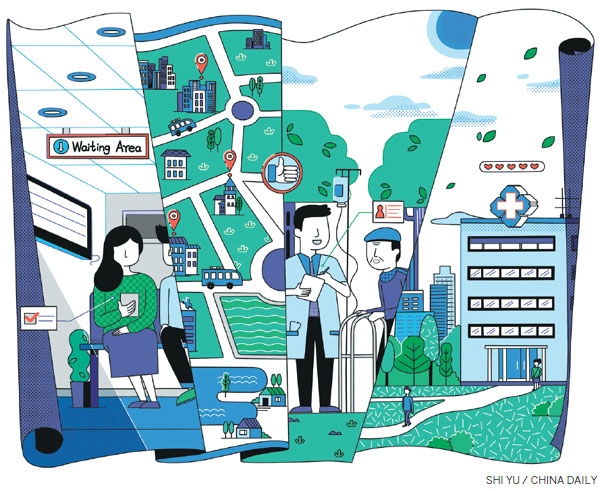100 million migrant workers to get new healthcare benefits


Medical bills will be paid near place of employment for injuries or sickness
Overwork can lead to ill health, injuries and loss of income. The financial burden is uppermost in the minds of migrant workers regarding illness and injuries that could result in wages being cut.
A vast number of people in this group move from one city to another, working under the harshest conditions at construction sites or other heavy-labor industries. As long as their medical payments cannot be reimbursed off site when going to hospital, they will be reluctant to have treatment, even when necessary. Instead, they will leave medical treatment for when they return home.
Liu Hui is one example of this. The 36-year-old construction worker from East China's Anhui province broke a bone in his hand when operating a mixer machine six months ago. But facing medical bills, he decided to treat the pain after returning home during the Spring Festival in February. The new-type rural cooperative medical care he has joined will relieve his financial burdens when he gets treated then.
But things are expected to change as the central government will make further endeavors to accelerate the process of off-site reimbursement of medical charges.
More than 100 million migrant workers are estimated to benefit from the central government's campaign to expand off-site medical settlement, a move that helps get their medical bills reimbursed more easily when they go to hospital in nonnative places.
This was part of the decisions made at a State Council executive meeting, which was presided over by Premier Li Keqiang on Oct 9, to further integrate reimbursement systems and facilitate patients nationwide.
All provinces and regions had been integrated into the nation's system of off-site medical settlement by the end of September, according to a statement released after the meeting.
The upgraded network covers all participants for basic medical insurance in urban areas and the new-type rural cooperative medical care for rural residents. More than 6,000 designated hospitals are connected under the program, however, thousands of others have still to be linked.
Each province, autonomous region or municipality previously had an independent system for medical reimbursement, making it extremely difficult for people working in other places to enjoy their legitimate rights for reimbursement.
It's good news for Liu, because the new reimbursement will get rid of his financial worries and apprehension as he will not lose any compensation he is supposed to get under the rural cooperative medical care system.
"For decades, migrant workers like me had been dealing with unexpected injuries under separated medical care systems. Not just me, many of my fellow workers, will be happy to see the policy when it takes effect," Liu added.
For Xiang Chunhua, a senior editor at the China Social Security magazine, the off-site settlement has eased complex procedures for medical reimbursement and will improve the healthcare for participants.
Last year, problems arising in the separated reimbursement systems topped the 10 questions raised by netizens to the premier in an online survey before the annual gathering of the National People's Congress. When meeting with the media in March 2016, Li promised to solve the problem within two years. The State Council executive meeting was the latest follow-up of what the premier promised in his Government Work Report this March.
Li said at the meeting that most migrant workers go to grassroots hospitals when they get sick or injured at work. They would not go to see doctor at hospitals not integrated with the national system. "We promote the direct settlement and must get the 100 million migrant workers to enjoy the benefits from the policy," the premier said.
Zhai Shaoguo, deputy director of the social security department at Northwest University in Xi'an in Shaanxi province, said that China's fast urbanization has made it a practical need to reimburse medical payments in other cities as an increasingly large number of people are moving from one place to another.
As urbanization proceeds, more migrant workers will enter cities. Off-site settlement will not only ensure their health and social fairness, but will also improve the competitiveness of enterprises they are working for, the premier added.
huyongqi@chinadaily.com.cn
- National health body expands pediatric services to nearly all hospitals
- Premier announces construction of Yarlung Zangbo hydropower project
- A perfect summer retreat in Hainan's tropical rainforest
- International beer festival kicks off in Qingdao
- Naadam festival gets underway in Inner Mongolia
- Probe blames algal degradation for foul odor in tap water





































